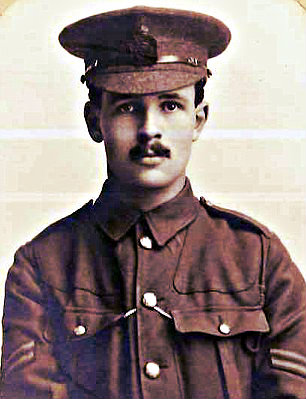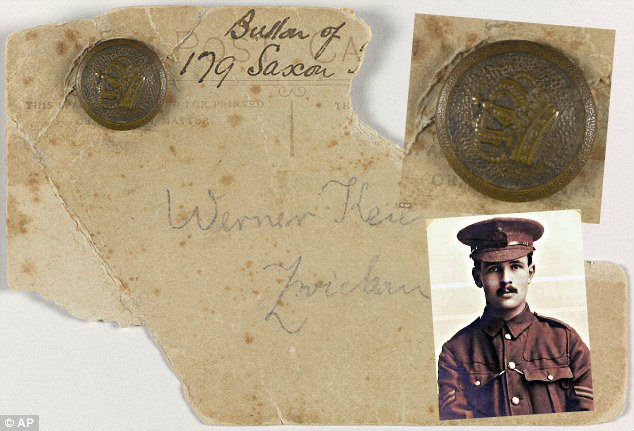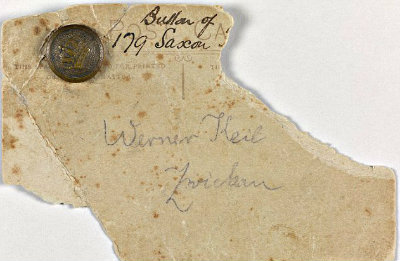An “incredibly rare” uniform button given by a German soldier to a British serviceman during the 1914 Christmas Truce is on display part of the First World War Galleries collection of the Imperial War Museum. The said button was given to WWI Corporal Eric Rowden by German soldier Werner Kiel. The two met and became friends even for just a short while on No Man’s Land that fateful Christmas day.
The Story
According to the 20-year-old corporal in the memoir that his family donated to the museum along with the button, the Germans had been calling out “Happy Xmas” in broken English and French the night before the truce along with saying that they wanted peace on Christmas. Despite hearing the proclamations made by their enemies, the 16th Battalion of the London Regiment, the unit where Rowden belonged, kept a sharp lookout throughout the night. However, nothing bad happened.

When the day came and the mist had lifted, he continued to narrate, the unit saw the German soldiers walking on top of the trenches and waving out at them. The gestures prompted the English soldiers to go up from their positions and do the same. Soon, the day found the two warring sides playing football behind their trenches.
When afternoon came, Rowden wrote that they met the Germans on No Man’s Land. Rowden met Kiel, a German soldier who knew how to speak a little English. From exchanging pleasantries, jokes and laughter with each other, the two went on trading buttons and cigarettes.
The rare button in Rowden’s belongings is pinned to an English postcard bearing the name of the German soldier who gifted it along with the unit he served in.
A One-of-a-kind Memento
The museum’s curator of documents and sounds, Anthony Richards, described the button as “incredibly rare”. This is because while stories about the Christmas Truce thrive and how souvenirs were exchanged on that day, actual surviving pieces of those souvenirs are hard to come by. What’s more, the button comes with Rowden’s written account about the event proving its authenticity.
Richards added that the museum is very delighted to look after “such an important collection”.
Meanwhile, the torn postcard where the button is pinned bears thumb print marks as well as creases, a strong indication that Rowden had carried the memento with him throughout his service in the Great War. Examining the paper, the word Zwickau is written beside the German soldier’s name. Zwickau is a city in Saxony, Germany and is presumed to be the city where the giver of the button came from.
After that Christmas, Corporal Rowden left the trenches for home in England on a leave. In October 1915, he went on to join the the Royal Naval Volunteer Reserve and was shipped off to France. December the following year, he was sent to the Michelham Convalescent Home which was located in the southern part of France to be treated from shell shock.
Rowden was awarded the 1914 Star, the British War Medal and the Victory Medal for the service he rendered the army during the Great War.
He eventually died at the age of 73 in 1968.

